1 Clockwork Angels by Rush
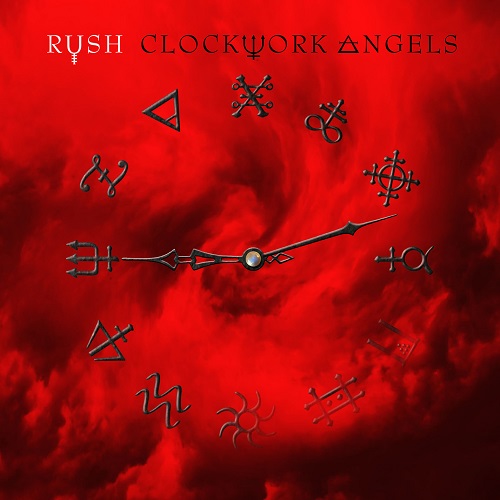
Clockwork Angels seems destined to be remembered chiefly for being Rush’s final studio album. Happily, the Canadian legends went out on a high. I suppose almost all of Rush’s albums are conceptual to some degree, but Clockwork Angels is plainly the most conceptual of them all, creating an alternate steampunk-inspired world and peopling it with mythic characters. For all that, though, Neil Peart’s lyrics translate his worldview, eschewing flights of fancy and superstition for reason and pragmatism; the album even goes so far (in BU2B, or Brought Up To Believe) as to dismiss organised religion in favour of a belief system formed of rugged individualism and empathy, something that I can only believe raised some eyebrows amongst Rush’s more religious fans. Peart’s compatriots, bassist and vocalist Geddy Lee and guitarist Alex Lifeson are also in fine fettle, and if Lee’s vocals lack some of the elasticity of old it’s easy to overlook given the strength of the record. Tracks like the title track, The Wreckers and the propulsive, euphoric Headlong Flight makes for a dizzying showpiece of all that made this band so compelling, and the closing The Garden is a beautiful summing up of a life – and, perhaps a little transparently, a career. Some fans have complained about the mastering, and the very busy mix, but personally I think these are minor gripes about a remarkable and deeply satisfying record. One for the ages.
2 Trouble With Machines by District 97
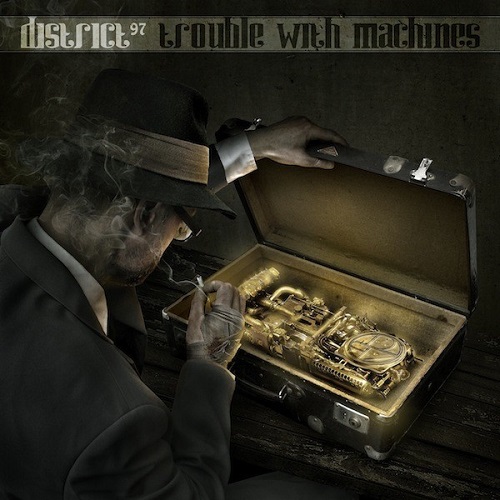
Chicago’s District 97 set themselves a very high bar with their debut album, 2010’s Hybrid Child. No “difficult second album” syndrome for them, though – Trouble With Machines is effortlessly superlative. Darker and a little heavier than the debut, it has the same magical sense of melody among the technical playing, and dazzling as it is, it still feels like the band are only getting started. The album also serves up a highly-effective duet with the late John Wetton (The Perfect Young Man, an unnerving tale of a suitor who is not at all what he appears) and the fascinating The Thief, possibly the most stunning prog ‘epic’ I’ve heard in years. I had already fallen hard for this band’s charms, but this album somehow managed to make me love them even more. Absolutely stunning stuff.
3 Weather Systems by Anathema
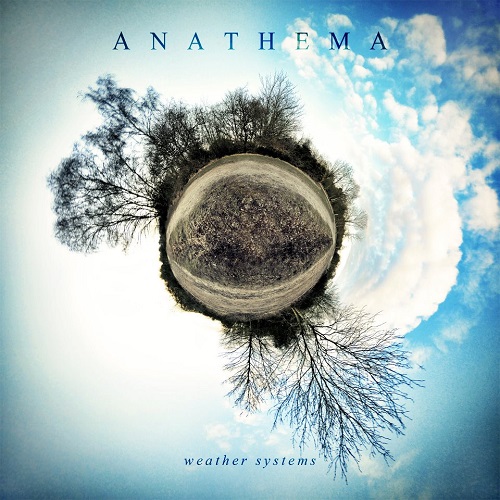
The album that proved that the magical We’re Here Because We’re Here was no fluke. Weather Systems has a somewhat looser theme, but inhabits the same sonic universe as its predecessor. Right from the off, with the two-part Untouchable, there’s a detectable increase in confidence, a sense that the band had found themselves again after the long-period of soul-searching that produced the previous album. Personally I don’t think it’s quite as emotionally potent as its predecessor, but that’s a pretty high bar to clear, so there’s no shame in that. That said, only the hardest of hearts could fail to be moved by the likes of Untouchable, The Lightning Song, Sunlight or the elegaic closer, Internal Landscapes. A beautiful record from a band whose reinvention was by now truly complete.
4 Skin by Panic Room
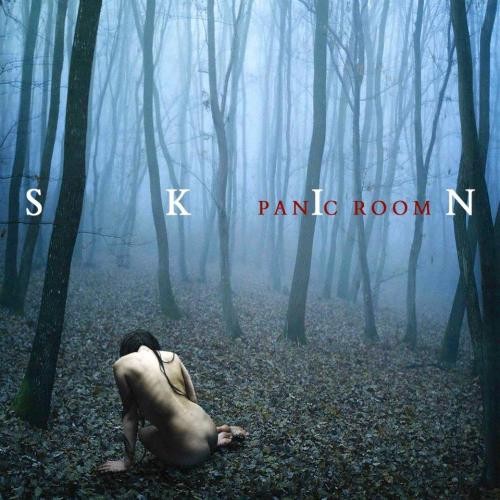
Strangely enough, Panic Room’s third album was a bit of a sleeper hit for me. After the atmospherics of Visionary Position and the very immediate, hooky Satellite, Skin at first felt like an uneasy mix between the two, and it was seeing the band perform the material live that finally made me grok what a special record it was. These days I feel it was their best album up to that point – although I will likely forever nurse a nostalgic ache for the effortlessly memorable songs of Satellite – although better was to come. Skin is a much darker record – literally in the case of wonderful closer Nocturnal, which as a previously largely nocturnal creature myself I identified with very closely – and a slow-burner, but well worth taking the time to get to know.
5 Sounds That Can’t Be Made by Marillion
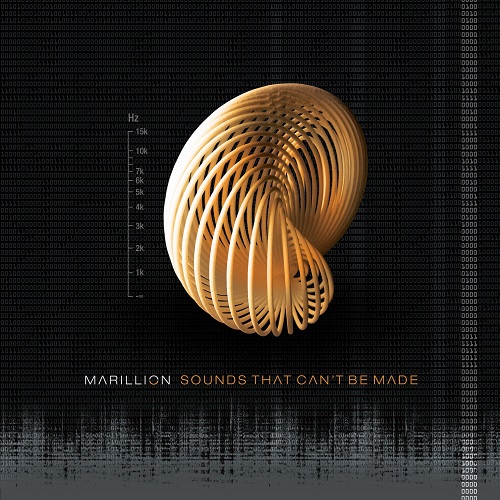
Marillion’s 16th album proper (if we disregard the disappointing Less Is More, an album of semi-acoustic reimaginings of earlier material) came after a comparatively long pause during which the band wrestled with writer’s block and came perilously close to calling it quits. At times the record still shows signs of the creative struggle that birthed it, but given the circumstances under which it was largely created, it’s a phenomenal return. Most column inches about the album concerned opening track Gaza, which examines the situation in the Gaza strip in unflinching, horrifying detail but from a humanitarian point of view. Marillion have never been reluctant to tackle humanitarian crises and political issues large and small, and Gaza may be one of their most heartfelt assaults on man’s inhumanity to man.
There’s far more to the album than Gaza, of course, and the rest of the album tackles more personal concerns; from the empathetic catharsis of the title track to Power‘s evocation of the true power of love, and from the band’s own homage to Montreal, a city that’s become very special to them, to the agonising relationship-in-meltdown crisis of The Sky Above The Rain, Sounds That Can’t Be Made is yet another jewel in Marillion’s weighty crown.
6 March Of Ghosts by Gazpacho
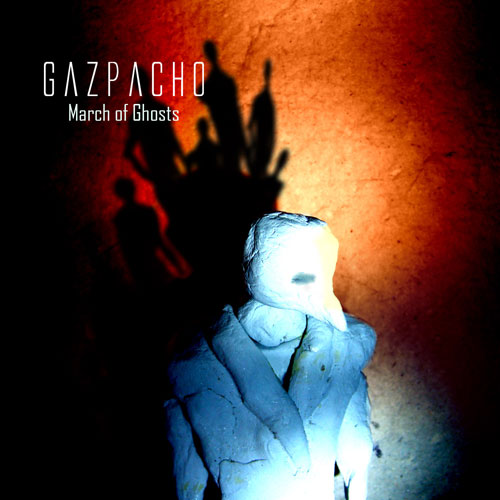
More conceptual progressive rock goodness from Norway’s finest sons. March Of Ghosts tells the tale of an unfortunate man who is visited by a succession of restless spirits (hence March Of Ghosts) who tell him their stories. Each story reveals a reason why the spirit (or spirits) cannot find rest, and the tales are tragic and unsettling by turns. Haitian war criminals, the crew of the ill-fated Mary Celeste, a time-travelling American soldier and a comedy writer wrongly accused of treason, among many others, all take their turns by the bedside of the protagonist. The result is one of Gazpacho’s darkest, eeriest records; one that also has a real sting in the tail. Disturbingly evocative, this is the sort of nightmare that you don’t really want to wake up from.
7 Requiem For The Indifferent by Epica
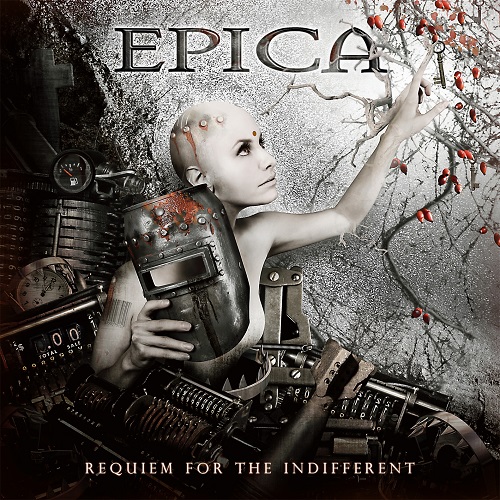
Epica’s fifth album proper holds up a mirror to today’s society and finds it lacking. Self-obsessed and venal, we focus on minutiae whilst the world around us falls victim to our carelessness and indifference. These might not be original ideas, but in Epica’s hands they form the basis for a coruscating assault on our self-satisfaction. Easily the most progressive record in their back catalogue, the Dutch symphonic metal band are at their blistering best here, hamstrung only by a slightly strange mix that sacrifices some of the band’s traditional heaviness for detail – an approach that nonetheless pays dividends at times, especially on the longer, more complex tracks like the title track and the subtly entitled Serenade Of Self-Destruction. It’s a very dynamic record: we get the usual death metal-influenced symphonic metal, but here it’s shot through with threads of Arabic music. The ballads are some of the mostly sumptuously arranged and beautifully executed of the band’s entire catalogue, too: the use of the choir on the stunning Delirium is breathtaking, and Deepwater Horizon – describing the environmental disaster caused by the titular rig is an ambitious and intense piece of work. This is a stunning, intricate record even by Epica’s high standards.
8 Not Your Kind Of People by Garbage
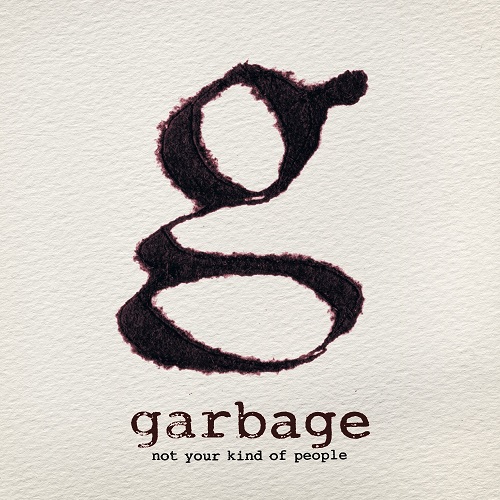
At the time this was about to be released, I was deeply excited at the prospect of a new Garbage album – their first since apparently disbanding after the tour for their previous album, 2005’s Bleed Like Me. I’ve always loved Garbage – I was a fairly early adopter, after becoming obsessed with their song Vow, released as a single shortly before their debut album came out in 1995. After the seven-year lay-off since Bleed Like Me, I was a little concerned that the band might have lost some of the fire that attracted me to them in the first place, but I needn’t have worried. Not Your Kind Of People is a splendid record, brimming with the outcast anthems that so endeared them to me in the first place, and also not afraid to try stylistic things that the band hadn’t tried before. Best of all, vocalist Shirley Manson was at her uncompromising, bloody-minded, but deeply empathetic best. The title track and closer Beloved Freak spoke to me in the same way that Only Happy When It Rains and Queer had in those early days, and I found a new personal anthem in Battle In Me. An absolute stormer of a record, and a killer comeback if ever there was one.
9 ~ by Iamthemorning
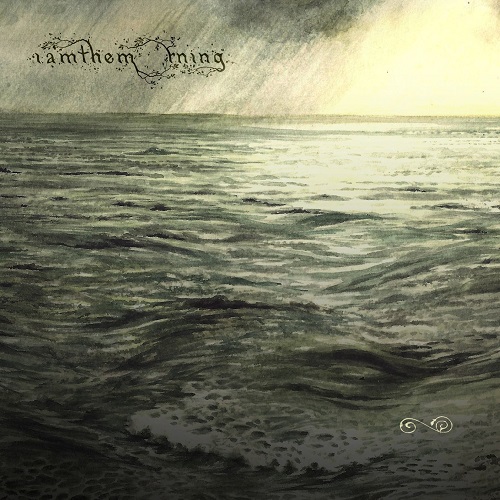
I came to Iamthemorning’s sublime debut album in retrospect, as a result of a deep love for its successor, the wonderful Belighted. This record is very much in the same vein, although perhaps starker and less obviously rooted in progressive rock. Without the star turns and richer textures that lend Belighted some of its magic, this record showcases the Russian duo – vocalist Marjana Semkina and keyboardist Gleb Kolyadin – with the kind of clarity that would be unforgiving were they not so ridiculously talented. Sitting somewhere between Tori Amos and a stripped-back progressive rock with classical influences, Iamthemorning’s first full-length record is highly creative, deeply memorable and emotionally powerful in its directness. Semkina’s glorious voice is given the space it needs to ring like a bell, and Kolyadin’s arrangements are wonderfully dynamic. This record is like an old friend to me now; I’ve yet to see the band play live – their appearances in the UK up to now have been necessarily sparse – but I’m really looking forward to seeing some of this much-loved material played live. An album, and a band, to fall in love with.
10 The Haunted Man by Bat For Lashes
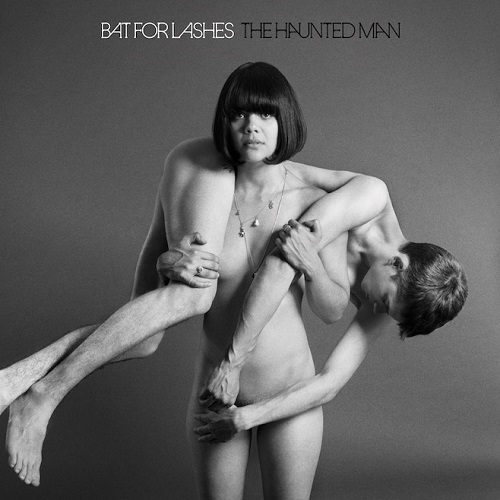
Natasha Khan, aka Bat For Lashes, third album is even starker in approach than her first two records, something reinforced by that daring monochrome cover art. Khan’s bruised croon is a thing of beauty, and here it really is the star of the show. The usual comparisons to Kate Bush are not misplaced, though Khan’s material is typically at the more introspective end of the spectrum. The vocals stand proud of less-is-more arrangements that emphasise simple chords and chattering percussion over a swelling sea of strings, and the effect is hypnotic: this is demonstrated well on the steadily swelling All My Gold, or the almost martial Horses Of The Sun. Later in the record, massed male voices form a counterpoint to Khan’s wounded vocal on the title track and the album slowly sinks into the languid Deep Sea Diver, an otherwordly finale to a suitably haunting record.
11 All The Wars by The Pineapple Thief
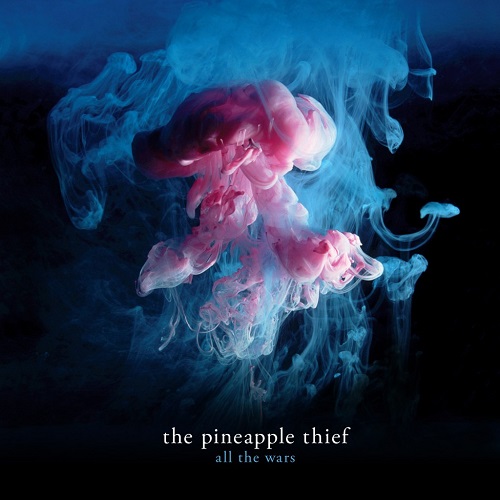
Once signed to the Kscope label, Yeovil’s The Pineapple Thief spent two albums making strikingly less introspective music; the joy of All The Wars for me is that it marries that new-found confidence with the more intimate, acoustic side of the band and adds a dash of the orchestral with some gorgeous string arrangements. For me, this was latter-day Pineapple Thief’s high water mark – at least until the marvellous Your Wilderness came along later, but that’s another story. Whilst it’s tempting to sing the praises of the more ambitious songs here, like the epic closer Reaching Out, or the brooding Give It Back, it’s when the band strip things back and dare to be stark and introspective, as on the gorgeous title track, or the eerie Someone Pull Me Out, that the band create a very special mood. This record really is the best of both worlds.
12 The Huntress by Mediaeval Baebes
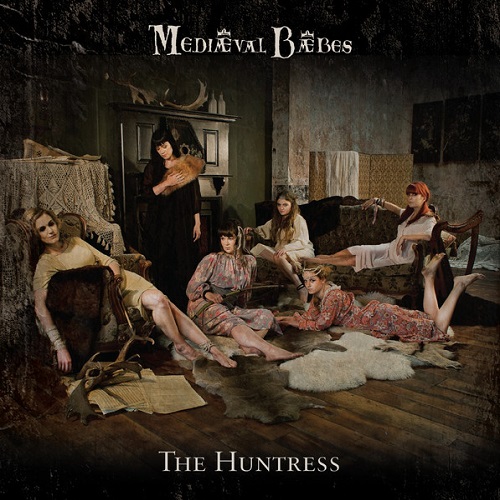
The uninitiated might be tempted to write off the Baebes as a one-trick pony: after all, how many mediaeval folk songs, principally sung in Latin, can you exhume before the law of diminishing returns set in? Happily the Baebes have never set limits on language or style, so there’s always something new and intriguing about each new record – they all have a distinct personality and mood. The Huntress is perhaps the definitive Baebes experience, a gorgeously rendered collection of well-known and more obscure pieces, wonderfully arranged and beautifully sung. From the obvious (I can still hardly believe that they hadn’t already tackled folk classic She Moved Through The Fayre) to the unexpected (the stark vocal stylings of Clasp Of A Lion or the shimmering harmonies of Jennet’s Song), The Huntress covers a wide range of material and moods with great style. I’m a long-term Baebes devotee after I discovered them purely by accident in the mid 90s, but this record really did floor me – along withwith their classic second album Worldes Blysse, this has to be my favourite thing they’ve ever done. Oh, and don’t miss their live show if you get the chance to see it – they often play churches and cathedrals, and whilst they’re special in any enviornment, in that kind of venue there’s something spine-tingling about those gorgeous vocal arrangements. The between-song banter is tremendous fun, too.
13 We Are The Others by Delain
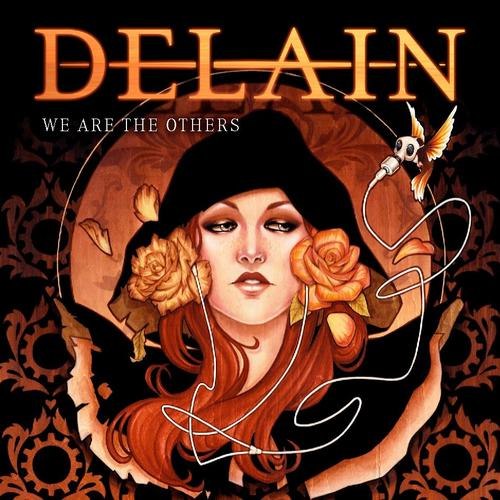
This was the album where I really started paying attention to Delain. Initially I felt the band – the brainchild of ex-Within Temptation keyboard player Martijn Westerholt – was a fascinating variant on the mothership band’s gothic-tinged symphonic metal, but wasn’t convinced the material possessed the same kind of emotional connection that Within Temptation had for me. This was the record that changed all that. Not only did it dial up the metal quotient – more riffs, less ballads – vocalist Charlotte Wessels truly came into her own, both as a vocalist and especially as a lyricist. Where Within Temptation tend to deal more in generalities and fantasy, Delain’s material is far more earthbound and gritty – here Wessels writes scathingly of intolerance, social media and fracturing relationships and sings every last track as if her very life depends on it. The band, in their turn, are taut and muscular and not afraid to mix things up a bit with some electronica and programmed drums amongst the typical symphonic metal sturm und drang. They’ve only increased in confidence since. The first two albums, in retrospect, are fine albums, but this is where they really spread their wings.
14 Ceremony by Anna Von Hausswolff
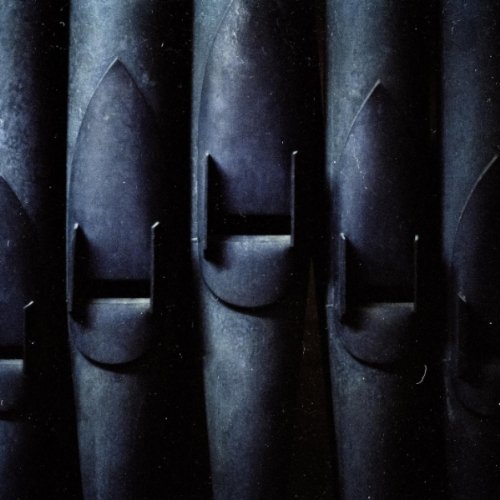
This record was my introduction to the wondrous Anna Von Hausswolff, and it remains a late-night treat for me to this day. It feels somehow wrong to expose this record to the light of day, lest it evaporate, vampire-like. Essentially this record is a duet between Anna’s vocals and Anna’s own organ playing; the result is sepulchral and stunningly beautiful at the same time. Cathartic is another word I would use; this is music that coalesces in the space where beauty and entropy collide. Ceremony is well-named; it’s impossible to listen to this album casually. It demands your full attention for its 60-minute running time- it’s a lights-off, total immersion record. Von Hausswolff’s desolate vocal is hugely affecting, and her choice of instrument reinforces the sense that what you’re hearing is somehow ritualistic. There’s a great deal of death on this record, but there’s also hope and rebirth; it’s no accident that after songs like Deathbed, Goodbye, and Funeral For My Future Children, the album ends with the shimmering Sun Rise. This final track throws off the thrall of the album and serves as reminder not to dwell on the inevitable. This really is a bold, stunning record.
15 Electra Heart by Marina & The Diamonds
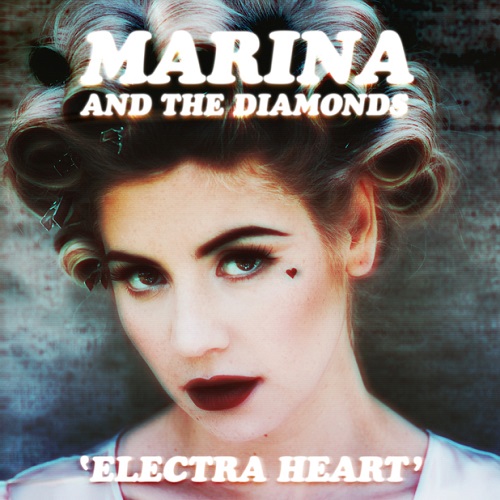
Marina Diamandis’ second album dispenses with the anthological feel of her debut and opts for a much more ambitious conceptual approach. Creating and adopting an alter ego for herself, a Kardashian-esque celebrity named Electra Heart, Diamandis uses her misadventurous to explore relationships, the joys and the costs of fame, and the destructive way in which modern culture treats those who create and amplify it. It’s breathtakingly audacious and jammed full of memorable setpieces and highly creative ideas. It’s also musically very adventurous, taking in slick r’n’b-inspired pop, dance music, stark balladry and even some muscular rock, and providing Diamandis with a rich backdrop for her extraordinary vocals. Her next album was even more impressive in some ways, but I feel this is still my favourite of her records, if only for its sheer ambition.
16 Rise by Schooltree
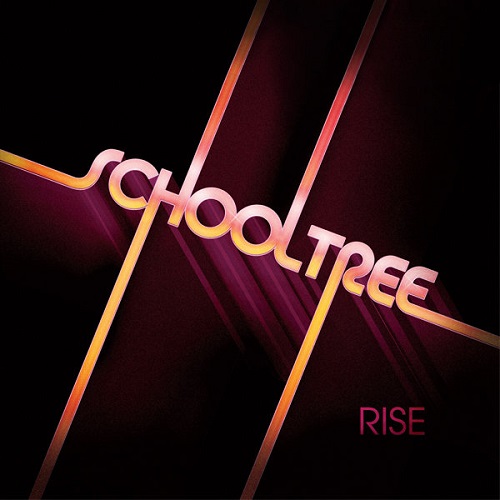
This is another album I came to in retrospect, thanks to an instant and passionate love affair with Schooltree’s phenomenal Heterotopia some time later. Let me be plain: I adore Lainey Schooltree. Her writing is incredibly sharp and well-observed, and her voice is a thing of wonder – the frequent comparisons to Kate Bush are on the money and well-deserved. Unlike Heterotopia – an epic conceptual double album – Rise is a more modest affair; a 42-minute collection of songs without the same kind of conceptual considerations. However, Schooltree makes every song land with grace, her swooping vocals always the star of the show, but never distracting from her intricate keyboard work or the muscular playing of her assembled band. Like Bush, Schooltree doesn’t deal simply in progressive rock; her music is born of myriad influences, and she’s never afraid to do the unexpected without patting herself on the back for a time signature change. Opener Six Feet Up, which effortlessly switches gear between multiple styles and signatures, Schooltree’s bewitching vocal hovering overhead, is a stunning piece of work and surely enough to captivate all but the most stubborn of listeners. The epic build of Heavenside and the soaring harmonies of Foreverish showcase a well-developed sense of musical dynamics, but its the ease with which Schooltree captures your heart as well as your ear that is immediately apparent. Elsewhere, the vocoder-flooded title track is a thing of quiet beauty, and the frank, unaffected balladry of After You’re Gone is instantly endearing. We’ll be hearing a lot more from this incredibly talented lady, you can be sure of that.
17 Les Voyages De L’âme by Alcest
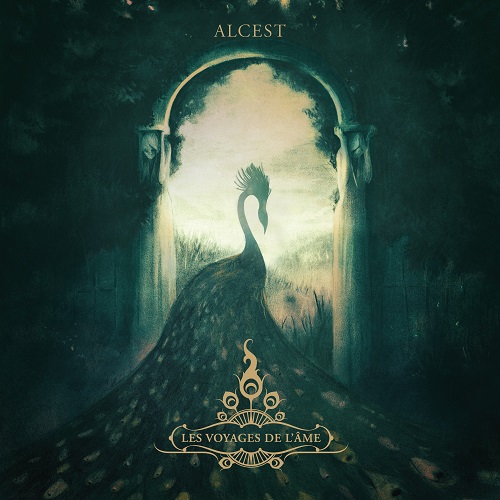
Alcest’s third long-player is a warmer, friendlier album than its predecessor, the gorgeous Écailles De Lune; it’s also more earthbound and propulsive – the coda of Là Où Naissent Les Couleurs Nouvelles breaks into a breathless gallop, and the song even finds space for some harsh black metal style vocals, a reminder of the band’s roots, something repeated on Faiseurs De Mondes, which is sung entirely in this mode. Similarly the relentless Beings Of Light is built around a thundering percussive assault, yet is possessed of a remarkable shimmering, surging, sense of joy. This mood is mirrored throughout much of the record, which is not possessed of the same otherwordly melancholy as previously. This is much more uplifting record, for all the occasional black metal trappings, and vocalist Neige had clearly spent more time crafting vocal melodies. The general sense is one of a band that have truly come of age. The title track in particular is a thing of shimmering, transcendent beauty.
18 Storm Corrosion by Storm Corrosion
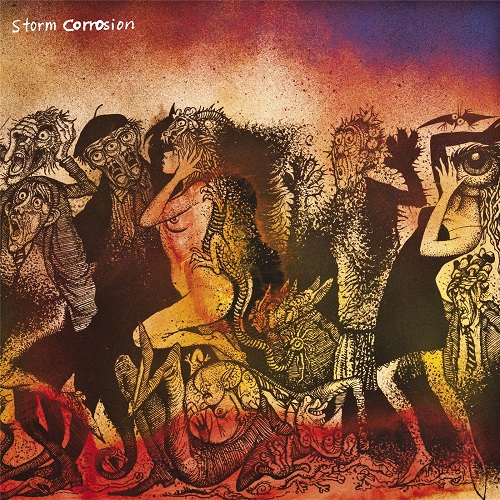
There was a great deal of speculation about Steven Wilson‘s collaboration with Opeth‘s Mikael Akerfeldt, Storm Corrosion. Given Opeth’s reputation as the most formidable of progressive metal bands, and Wilson’s own proferred opinion that most of the more interesting and truly progressive music around at the time came from metal bands, many people were expecting a progressive metal extravaganza. What they got instead was this strangely timeless album of lengthy, twisted folk-rock with eerie ambient interludes. The backlash at the time was something to behold, but all the same this is an intensely atmospheric and occasionally downright unsettling album that has spent a great deal of time rotating within the stereo at Hippy Towers. The opening Drag Ropes sets out its stall in some style: if you can imagine a folk-rock band formed in Summerisle with an unhealthy interest in death and the occult, you’re getting warm. So far, this is Storm Corrosion’s only album, and it seems unlikely there will be more. Which is a shame; I’d be very interested to see where a second record would take the duo. How about it, fellas?
19 Dark Adrenaline by Lacuna Coil

It’s typical that after being criticised repeatedly for not changing enough, Italy’s Lacuna Coil were repeatedly criticised for changing too much on 2009’s Shallow Life. That album’s slick, modern sheen and pop-influenced stylings caused more than a few raised eyebrows. Personally I enjoyed it because it was something a little different, but there you go. In the wake of the blowback, I expected the band to retreat to the stylings of past classics like Comalies and Karmacode; and whilst that’s true to some extent, Dark Adrenaline ended up building a bridge between the much-maligned Shallow Life and their classic output, whilst turning up the metal quotient further than ever. Opener Trip The Darkness is classic Lacuna Coil with real bite, built around a huge churning riff, and tracks like Kill The Light and Upsidedown amped things up still further. The change really played to the strengths of the vocalists: Cristina Scabbia has rarely sounded more imperious than she does here, and Andrea Ferro – who had occasionally struggled with more melodic parts on the previous couple of albums – immediately seemed much more at home, his inimitable bellow cutting through the songs in a way that will bring a smile to any dedicated Lacuna Coil fan. Great stuff. Impossibly, there was better to come.
20 Born To Die by Lana Del Rey
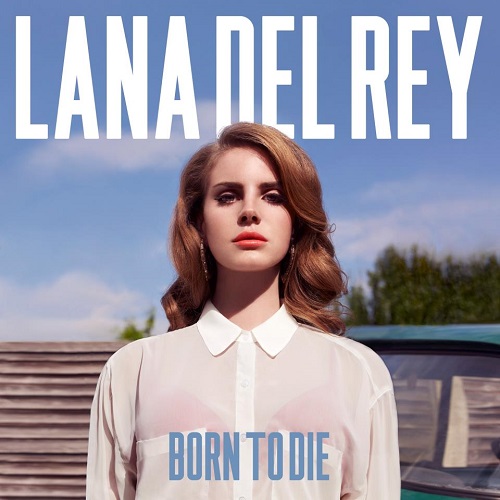
Although Lana Del Rey had already released some music under other names (Lana Del Rey being a nom de plume), and recorded an eponymous record under her new pseudonym that was released and swiftly withdrawn from sale, strictly speaking this is Lana Del Rey’s operational debut album. Given that, I’m struggling to remember the last time I was so instantly smitten with anyone’s debut album. Born To Die is a beautiful heathaze of a record, its slow-mo torch songs and slightly sinister trip-hop floating uneasily on sweeping strings and Del Rey’s flexible, sensuous vocals. The songs are all unrequited longing, romantic idealism and bitter break-ups, which might render it somewhat one-dimensional in lesser hands, but Del Rey and her collaborators (most notably Rick Nowels, whose pop genius did so much for Belinda Carlisle‘s career) know exactly what they’re doing and Del Rey herself is a flawed, complicated anti-heroine who is utterly magnetic throughout. Just mesmerising. I actually replaced my original copy of this album with the ‘Paradise Edition’ of this album, which adds the contents of the subsequent Paradise EP – worth it for the eerie, Lynchian Body Electric and the simply stunning Drive alone.
21 A Far Cry From Home by Stolen Earth
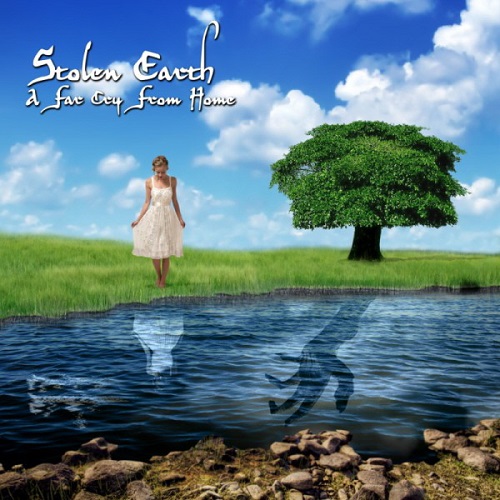
When the York-based Breathing Space – a band formed by then ex-Mostly Autumn keyboard player Iain Jennings and Mostly Autumn backing vocalist Olivia Sparnenn – finally folded as a result of Jennings and Sparnenn being re-absorbed into Mostly Autumn following the departure of Heather Findlay, the remainder of the band and new vocalist Heidi Widdop recruited some new blood and renamed themselves Stolen Earth. The band’s debut (and sole) album was a truly wonderful piece of work. A Far Cry From Home bridged the gap between sturdy classic rock and rootsy folk influences with a distinctly Floydian flourish, and served up some material that never got the props it deserved; from the taut rocker Unnatural Disaster to the propulsive, joyous closer Perfect Wave. Sadly the band imploded from internal tensions only a few months after the album was released. Ignore the clumsy cover art – this was a lovely record that deserves a wider audience.
22 Not The Weapon But The Hand by Steve Hogarth & Richard Barbieri
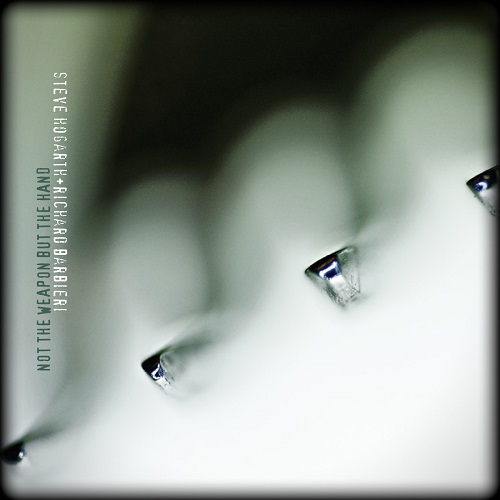
This is a strange and beautiful record. A collaboration between Japan and Porcupine Tree synth wizard Richard Barbieri and Marillion‘s Steve Hogarth, it doesn’t so much consist of songs as musical mood paintings, Hogarth’s words paired with Barbieri’s stunning and often minimalistic electronic orchestrations. Arguably, it peaks early with the gorgeous Red Kite, but there’s a lot to enjoy here – from the predictably gorgeous (Only Love Will Make You Free and Naked) to the darker and more fractured (the more kinetic Crack, and the disdainful Your Beautiful Face – a track which is very different lyrically from what you might imagine based on its title). Barbieri has a real knack for conjuring the unexpected, and Hogarth is as reliably emotive as ever. Straight out of left-field, this one, but I love it.
23 The Ghost Moon Orchestra by Mostly Autumn
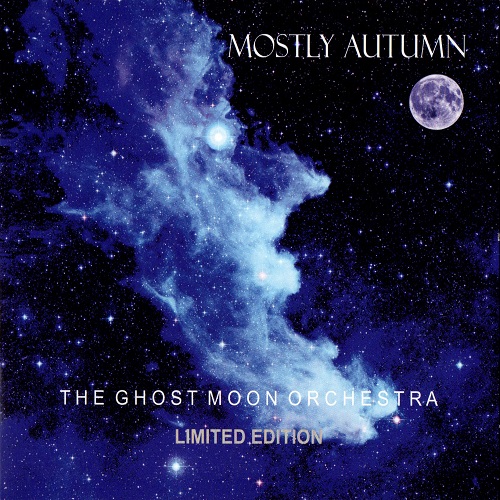
I had very high hopes for this album after the triumph over adversity which was the band’s previous album, Go Well Diamond Heart. However, in some ways this record was a throwback to the band’s frustrating previous form: some truly wonderful material interspersed with some clunky meat and potatoes rockers. The Devil And The Orchestra is a particular example, a plodding blues rocker that fancies itself as Zeppelin-like but which lacks all that band’s finesse. It seems that this is the price the listener pays for truly spectacular fare like the haunting Tennyson Mansion, the soaring Wild Eyed Skies, or the decidedly gothic opener, Unquiet Tears, all of which are stunning pieces of work. The band scratch their perennial celtic itch with the engaging This Ragged Heart, and prove that their knack for subtlety is as strong as ever with the moving Things That We Notice and album closer Top Of The World which opens with solo piano but ends with a soaring Floydian coda that sounds like a star going nova. In typical Mostly Autumn style, a truly outstanding record with a few nagging flaws.
24 Echoes Of Betrayal by Winter In Eden
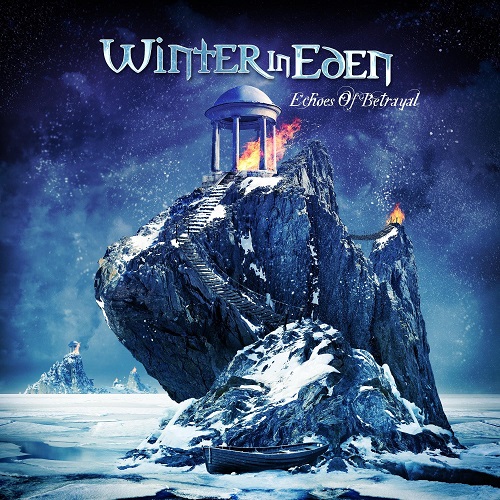
Winter In Eden’s second album sees them grow in confidence, and make great strides towards throwing off the yoke of the bands that inspired them. From the slicker production to the more assured performances, there’s a definite air of a band who know where they’re headed. It’s also a somewhat heavier album than its predecessor; what it therefore surrenders in terms of dynamics it more than compensates for with pure energy. Particularly noteworth is vocalist Vicky Johnson; the album is filled with hooks and big choruses, and as such is supremely memorable, but it is Johnson who really lends the material wings. Everyone turns in great performances, though – these guys are the creme de la creme of British symphonic metal, for sure.
25 Wonky by Orbital
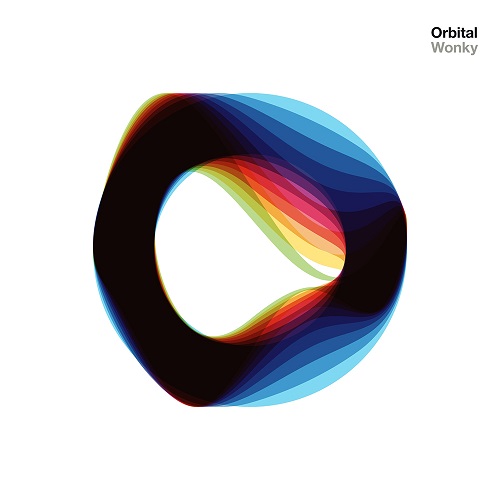
The Hartnoll brothers’ first Orbital album since The Blue Album (2004), Wonky came with some hefty expectations; expectations that were perhaps unrealistic after the brothers had spent so much time working separately. Wonky is very good indeed, but it’s probably fair to say that it falls a little short of their rightly exalted ‘classic’ output. There’s no denying the almost primeval glee triggered by the clattering rhythms contained in the likes of Stringy Acid, the smile-inducingly demented Beelzedub and the very typically Orbital closer Where Is It Going? If anything, it’s the guest stars that let the side down: the Zola Jesus-assisted New France is anti-climactic, and Lady Leshurr doesn’t add anything to the title track that some wacky samples couldn’t have done. Still, there was more than enough here to remind us all of how mindbendingly great Orbital were in their pomp; which made it all the more bittersweet when the brothers went their separate ways again shortly afterwards. (Happily, as I write this they’re back together and working as Orbital once more – hopefully more permanently this time.)
